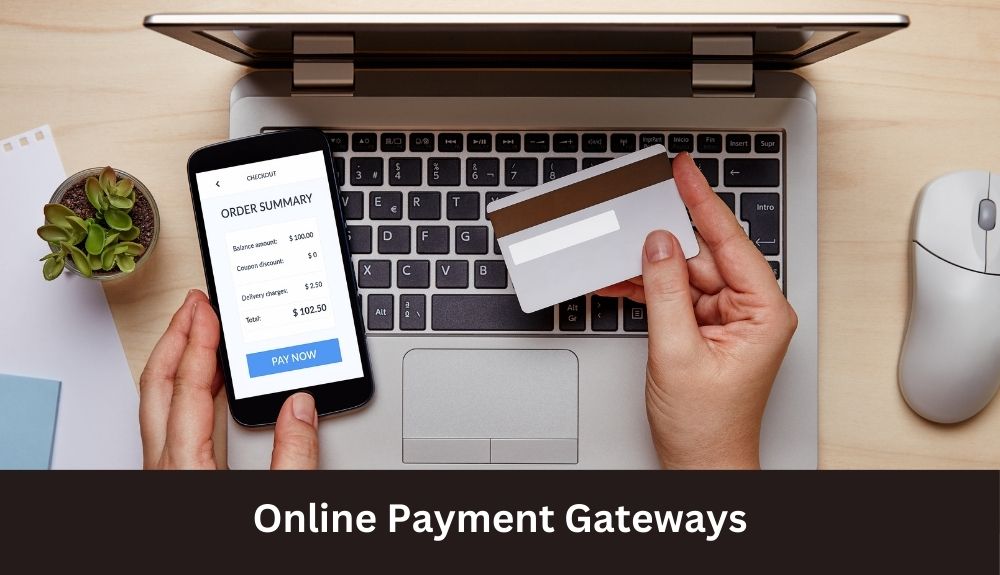
By max February 22, 2024
Introduction to Payment Integration Solutions
Are you ready to elevate your business to the next level? When it comes to payment integration solutions, making the right choice can make all the difference. From enhancing security measures to improving customer experience, finding the perfect fit is crucial for success. Let’s dive into the world of payment integration and explore the key factors that will help you choose the ideal solution for your business.
Why Payment Integration is Important for Businesses
In today’s fast-paced digital world, having a seamless payment integration system is crucial for businesses of all sizes. Picture this: a customer wants to make a purchase on your website, but the payment process is clunky and insecure. Chances are they’ll abandon their cart and head straight to a competitor with smoother transactions.
By integrating reliable payment solutions into your business operations, you not only enhance the overall customer experience but also build trust and credibility with your audience. Secure payment gateways protect sensitive data, reducing the risk of fraud and boosting customer confidence in making online transactions.
Moreover, efficient payment integration streamlines internal processes, saving time and resources that can be better utilized elsewhere in your business. Simplifying payments can lead to increased conversions, higher customer retention rates, and ultimately drive revenue growth for your company.
Factors to Consider When Choosing a Payment Integration Solution
When selecting a payment integration solution for your business, several factors should be taken into consideration to ensure smooth transactions and customer satisfaction.
Prioritize security and fraud protection features to safeguard sensitive financial information from potential threats.
Compatibility with your current systems is crucial to seamlessly integrate the new payment solution without disrupting existing operations.
Consider the customer experience aspect by choosing a solution that offers user-friendly interfaces and multiple payment options for convenience.
Evaluate the cost and pricing plans of different solutions to find one that aligns with your budget while providing necessary features.
By carefully assessing these factors, you can select a payment integration solution that enhances efficiency and reliability in processing payments for your business.
A. Security and Fraud Protection
When considering payment integration solutions for your business, security and fraud protection should be a top priority. Your customers trust you with their sensitive information when making purchases online, so ensuring that data is secure is crucial. Look for a payment integration solution that offers robust encryption methods to protect against potential threats.
Fraud prevention features such as tokenization and real-time monitoring can also help safeguard transactions from unauthorized activities. It’s essential to choose a provider that complies with industry standards like PCI DSS to guarantee the highest level of security for both you and your customers.
Regularly updating security protocols and conducting thorough risk assessments are key practices in maintaining a secure payment environment. By prioritizing security and fraud protection in your choice of payment integration solution, you can establish trust with your customers and safeguard your business from potential risks.
B. Compatibility with Current Systems
When choosing a payment integration solution for your business, compatibility with your current systems is crucial. You want a seamless integration process that won’t disrupt your operations. Consider if the solution can easily integrate with your existing point-of-sale system or e-commerce platform.
Compatibility extends beyond just technical aspects; it also involves how well the solution aligns with your business model and processes. Look for a payment integration that can adapt to your specific needs and workflows without requiring major adjustments.
Ensure that the chosen payment solution works effortlessly with any future upgrades or changes you may make to your systems. It should be flexible enough to scale alongside your business growth without causing complications or delays in transactions.
By prioritizing compatibility with current systems, you can streamline operations and provide a better experience for both your team and customers when processing payments efficiently and securely.
C. Customer Experience

When choosing the right payment integration solution for your business, considering customer experience is crucial. The checkout process should be seamless and user-friendly to ensure a positive interaction with your brand.
Customers value convenience, so opting for a payment solution that offers multiple payment options can increase satisfaction. It’s important to provide a secure and reliable platform that instills trust in customers when making transactions.
Personalizing the checkout experience by offering saved payment information or one-click payments can enhance customer convenience and streamline the purchasing process. Additionally, having responsive customer support in case any issues arise during payments is essential for a smooth experience.
By prioritizing customer experience in your choice of payment integration solution, you can create a more pleasant shopping journey for your clientele, leading to increased loyalty and retention rates.
D. Cost and Pricing Plans
When it comes to choosing the right payment integration solution for your business, cost and pricing plans play a crucial role in the decision-making process. It’s important to consider not only the initial setup fees but also ongoing transaction costs and any additional charges that may apply.
Some payment integration solutions offer tiered pricing based on transaction volumes, while others have flat-rate pricing structures. Understanding your business’s payment processing needs and budget constraints will help you determine which pricing plan is most suitable for you.
Keep an eye out for hidden fees or extra charges that could impact your bottom line unexpectedly. Transparency in pricing is key when evaluating different payment integration solutions to ensure there are no surprises down the line.
Finding a cost-effective solution that meets your business requirements without compromising on quality is essential for long-term success in managing payments seamlessly.
Types of Payment Integration Solutions
When it comes to payment integration solutions, businesses have a few options to choose from based on their specific needs. Traditional merchant services are one avenue for businesses looking for a direct relationship with a financial institution. This can offer more control but may come with higher costs and longer setup times.
Third-party payment processors like PayPal or Square provide an alternative option that is quick to set up and easy to use. While they may offer less customization, they are popular choices for small businesses due to their simplicity.
Online payment gateways, such as Stripe or Authorize.Net, specialize in securely processing online transactions. They often offer robust features like multi-currency support and subscription billing capabilities, making them ideal for e-commerce businesses.
Each type of payment integration solution has its own advantages and considerations, so it’s essential for businesses to evaluate which option aligns best with their goals and requirements before making a decision.
A. Traditional Merchant Services
Traditional merchant services have long been a staple in the world of payment processing. Businesses that opt for traditional merchant services typically work with banks or financial institutions to set up dedicated merchant accounts. This allows them to accept credit and debit card payments directly.
One key benefit of traditional merchant services is the ability to have more control over transactions and funds. This can be appealing for businesses that value security and reliability in their payment processes.
However, traditional merchant services often come with higher fees and longer setup times compared to other payment integration solutions. Additionally, they may not always offer the same level of flexibility and customization as newer options like online payment gateways or third-party processors.
Before choosing traditional merchant services for your business, consider factors such as transaction volume, industry requirements, and growth projections to ensure it aligns with your specific needs.
B. Third-Party Payment Processors
When it comes to payment integration solutions, third-party payment processors play a crucial role in facilitating transactions for businesses of all sizes. These service providers act as intermediaries between merchants and financial institutions, streamlining the payment process and offering added convenience.
One of the key advantages of using third-party processors is their ability to support multiple payment methods, including credit cards, digital wallets, and alternative payment options. This versatility can help businesses cater to a wider range of customers and improve overall conversion rates.
Additionally, third-party processors often offer advanced security features such as encryption technologies and fraud detection tools to protect sensitive customer data. By outsourcing payment processing to these specialists, businesses can reduce the risk of data breaches and ensure compliance with industry regulations.
Moreover, many third-party processors provide detailed analytics and reporting tools that allow merchants to gain valuable insights into their transaction data. This information can help businesses optimize their pricing strategies, identify trends, and make informed decisions about future growth opportunities.
Choosing a reputable third-party payment processor can significantly enhance the efficiency and effectiveness of your business’s online payments system.
C. Online Payment Gateways

When it comes to online payment gateways, businesses have a range of options to choose from. These gateways act as the intermediary between customers, merchants, and banks during online transactions. They ensure secure processing of payments through encryption and authentication protocols.
Online payment gateways offer convenience by allowing customers to make purchases without leaving the website. They support various payment methods such as credit cards, digital wallets, and bank transfers. This flexibility can enhance the overall shopping experience for customers.
Integration with popular e-commerce platforms like Shopify, WooCommerce, or Magento is crucial when selecting an online payment gateway. Compatibility ensures smooth transactions and reduces any technical issues that may arise during the checkout process.
Consider factors like transaction fees, setup costs, and ongoing maintenance charges when evaluating different online payment gateway solutions for your business. Finding a balance between cost-effectiveness and features is key to making the right choice for seamless payment processing on your website.
Remember to prioritize security measures offered by the online payment gateway provider to safeguard sensitive customer data against potential cyber threats or fraud activities. By carefully assessing these aspects, you can select an online payment gateway that aligns with your business needs effectively.
How to Evaluate and Compare Different Solutions
When evaluating and comparing different payment integration solutions for your business, it’s crucial to consider factors such as security, compatibility with existing systems, customer experience, and cost. By prioritizing these aspects and exploring traditional merchant services, third-party payment processors, and online payment gateways, you can make an informed decision that aligns with your business goals.
The right payment integration solution will not only streamline transactions but also enhance the overall efficiency of your operations. Choose wisely to ensure a seamless payment process that benefits both your business and customers alike.
